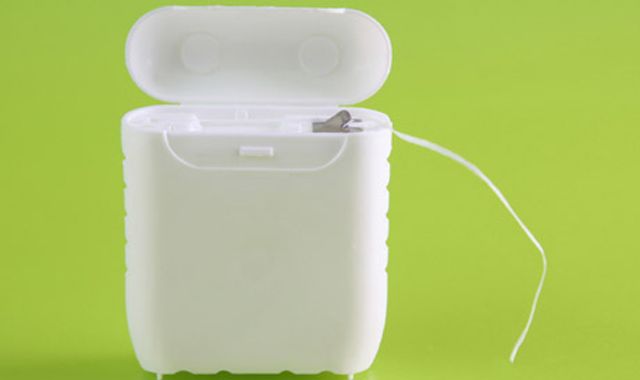Survey finds shocking number of patients lie to their dentists about flossing
Are your patients lying to you about their oral hygiene habits? Probably so, says one new national survey.

Are your patients lying to you about their oral hygiene habits? Probably so, says one new national survey.
As part of the national “Love the Gums You’re With” campaign, the American Academy of Periodontology (AAP) released a new national survey that revealed that 27 percent of American adults admit they lie to their dentist about how often they floss their teeth.
New discovery could increase protection against dental infection
Additionally, more than a third of Americans (36 percent) would rather do an unpleasant activity over daily flossing such as cleaning the toilet (14 percent), washing a sink full of dirty dishes (18 percent) or waiting in a long checkout line (14 percent). Moreover, nearly one in ten US adults would rather sit in gridlock traffic for an hour or do their taxes (9 percent each).
The online survey was conducted within the United States among 2,021 adults ages 18 and older. Interestingly, the survey also revealed some regional distinctions in oral healthcare. Among the top 10 U.S. markets, Chicagoans are more likely than those in other regions to opt for an hour of gridlock traffic over daily flossing. However, New Yorkers are more likely than those in other metro areas to include flossing in their personal care routine.
Study finds periodontal disease most prevalent among ethnic minorities
Southern manners could also be at play. Those who live in Atlanta are more likely than those in other top metro regions to be honest with their dentist about their flossing routine. Atlantans also are more likely than those in other top metro regions to tell friends when they have something stuck in their teeth. On the contrary, those who live in DC are more likely than those in other top metro regions not to alert a friend of any potentially embarrassing lunch leftovers.
Continue to page two to see what other factors affected flossing habits...
In addition, three in five (60 percent) U.S. adults who have a partner say their partner’s oral health has an effect on their intimacy, while over a third of Americans say a smile is the first thing they notice when meeting someone they are attracted to. In fact, more than two in five of those living in Los Angeles, Atlanta and Boston say a smile is the first thing they notice when meeting someone they are attracted to. This is especially true for women.
Study finds missing teeth can predict cardiovascular events
Launched in April 2014, the AAP’s “Love the Gums You’re With” campaign is aimed at teaching Americans to take better care of their gums by implementing simple steps into their routine such as brushing twice a day, flossing daily, and receiving an annual comprehensive periodontal evaluation from their dental professional or periodontist. Despite its prevalence, periodontal disease is hardly ever discussed, resulting in a lack of urgency for people to properly care for their gums.
“There’s clearly more work to be done when it comes to educating Americans about the importance of oral hygiene,” remarked AAP President Joan Otomo-Corgel, DDS, MPH. “There are more than 500 bacterial species that can be found in plaque, and brushing alone does not remove the bacteria that live below the gum line. The good news about periodontal disease is, with proper and timely care, it’s treatable and often reversible. If a person is at risk for periodontal disease, a periodontist has the training and expertise to determine the best course of treatment.”
Emerging research: Can treating gum disease affect prostate symptoms?
About the American Academy of Periodontology
The American Academy of Periodontology (AAP) is the professional organization for periodontists–specialists in the prevention, diagnosis, and treatment of diseases affecting the gums and supporting structures of the teeth, and in the placement of dental implants. Periodontists are also dentistry’s experts in the treatment of oral inflammation. They receive three additional years of specialized training following dental school, and periodontics is one of the nine dental specialties recognized by the American Dental Association. The AAP has more than 8,000 members worldwide. For more information, visit perio.org.
This article was taken from materials provided by the AAP. It has been edited for content and length.